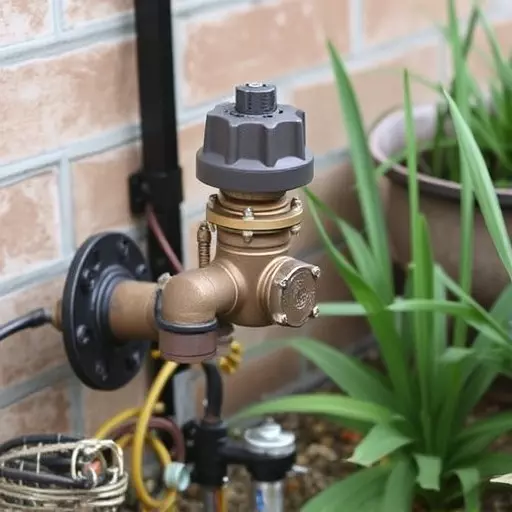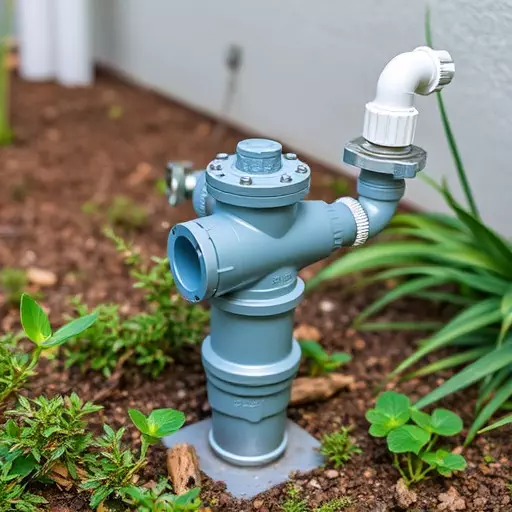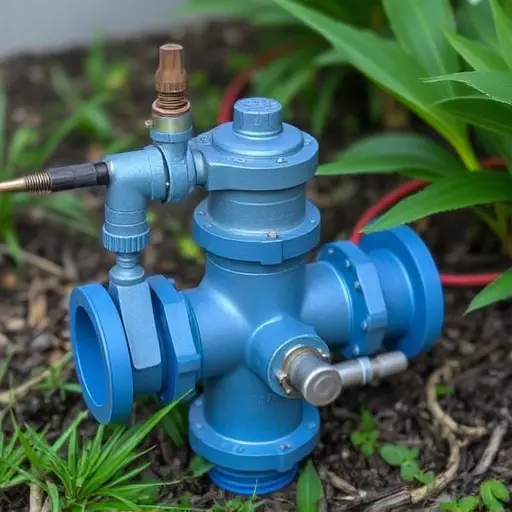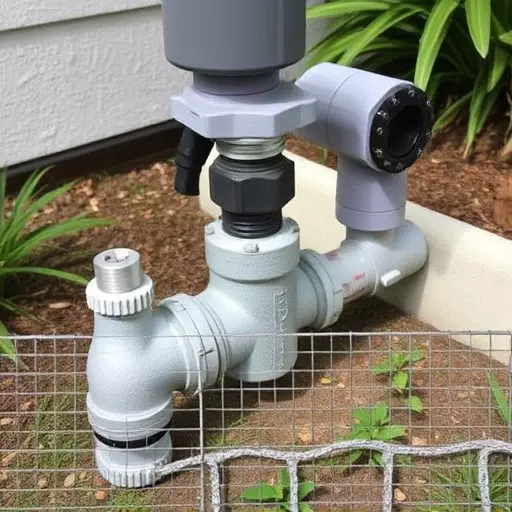Backflow preventers are essential for maintaining water quality and safety in both commercial and residential settings. In Jacksonville, proper installation of these devices is not only a regulatory requirement but also crucial for public health. Commercial properties with car washes or irrigation systems need specialized backflow preventers to handle higher pressures and volumes, while residential installations focus on preventing contaminants like bacteria and chemicals from entering household plumbing. Regular testing, maintenance, and professional care are vital for effective operation and compliance with local regulations. For car wash facilities, selecting the right type of backflow preventer (e.g., reduction valves or vacuum break devices) tailored to their specific needs is critical. Proper installation, testing, and ongoing maintenance ensure protection against water contamination, safeguarding both environments and customers.
“Ensuring safety and compliance in car wash operations is paramount, and at the heart of this lies proper backflow preventer installation. This article guides you through the essential process, focusing on both commercial and residential applications. We explore different types of backflow preventer systems, highlighting their unique roles in protecting water sources. From irrigation backflow preventer installation steps to choosing the ideal solution for your car wash facility, this comprehensive guide offers valuable insights for Jacksonville businesses. Additionally, we cover maintenance and testing protocols to guarantee longevity and adherence to regulations.”
- Understanding Backflow Preventers: A Vital Safety Measure for Car Wash Businesses
- Types of Backflow Preventer Systems: Commercial vs. Residential Applications
- Irrigation Backflow Preventer Installation: Steps and Best Practices
- Choosing the Right Backflow Preventer for Your Car Wash Facility
- Maintenance and Testing: Ensuring Longevity and Compliance
Understanding Backflow Preventers: A Vital Safety Measure for Car Wash Businesses

Backflow preventers are an essential safety mechanism designed to stop contaminated water from flowing back into potable water sources, like those used in car washes. These devices play a crucial role in protecting both public health and the integrity of local water supplies. In commercial settings, such as car wash facilities in Jacksonville, proper installation of backflow preventers is not just a regulatory requirement but also a critical step in ensuring the safety of customers and employees.
Residential and commercial properties alike often rely on irrigation systems that can inadvertently introduce contaminants into drinking water sources. An irrigation backflow preventer installation serves as a robust barrier against this, minimizing the risk of bacterial, chemical, or other foreign substance contamination. By understanding the importance of these devices and ensuring their correct installation, car wash businesses can contribute to maintaining a healthy and safe environment for their patrons.
Types of Backflow Preventer Systems: Commercial vs. Residential Applications

Backflow preventer systems are essential components in maintaining water quality and safety, especially in commercial and residential settings. The primary function is to stop backflow, which can occur when contaminated water from a side-stream or drain tries to flow back into the main water supply. These systems are crucial for preventing the spread of pollutants and ensuring the integrity of potable water sources.
When it comes to installation, there are distinct considerations for commercial versus residential applications. Commercial backflow preventer installation in Jacksonville often involves more complex setups due to larger water demands and diverse water sources. This may include specialized irrigation backflow preventers designed to protect against agricultural chemicals and other contaminants. In contrast, residential installations typically focus on safeguarding household plumbing from potential hazards like bacteria, pesticides, and chemical residues found in lawn care products. Both types of installations require regular testing and maintenance to ensure their effectiveness and comply with local regulations, emphasizing the importance of professional expertise for proper setup and ongoing care.
Irrigation Backflow Preventer Installation: Steps and Best Practices

When it comes to installing an irrigation backflow preventer, whether for a commercial site in Jacksonville or a residential property, following a structured approach ensures safety and compliance with regulations. The process begins by identifying the water source and understanding the specific requirements for your area. Next, select an appropriate backflow preventer certified for irrigation use, ensuring it matches the water pressure and flow rate of your system. Installation should be handled by trained professionals who can properly assess the layout, install the device, and test its functionality to guarantee it prevents backflow effectively.
Best practices dictate regular maintenance checks to ensure the backflow preventer remains in top condition. This includes checking for any leaks, inspecting valves for wear and tear, and replacing parts as needed. Additionally, staying informed about local regulations and keeping records of installation and maintenance activities is vital. By following these steps and adhering to best practices, you can ensure a secure and efficient irrigation backflow preventer system, protecting your water supply and meeting all required standards.
Choosing the Right Backflow Preventer for Your Car Wash Facility

When it comes to selecting a backflow preventer for your car wash facility, whether commercial or residential, it’s crucial to consider specific factors to ensure the right fit. The primary goal is to prevent contaminated water from flowing back into your main water supply, ensuring both water quality and safety. Commercial backflow preventer installation in Jacksonville requires specialized equipment designed to handle higher volumes and pressures, while residential installations focus on protecting individual properties from potential pollution sources.
Choosing the appropriate backflow preventer involves understanding your facility’s water system, including pressure levels, flow rates, and potential contamination risks. Different types of backflow preventers, such as reduction valves, check valves, and vacuum break devices, serve various purposes. Irrigation backflow preventer installation is particularly important for car washes with irrigation systems, aiming to safeguard the surrounding environment from chemical or bacteria-laden water. Always consult professionals for guidance tailored to your specific needs, ensuring compliance with local regulations and optimal protection for your water sources.
Maintenance and Testing: Ensuring Longevity and Compliance

Regular maintenance and testing are essential aspects of backflow preventer installation for car washes, both in commercial and residential settings. Commercial backflow preventer installation Jacksonville experts recommend a strict schedule for these checks to ensure the device’s longevity and adherence to local regulations. Irrigation backflow preventers, specifically designed for outdoor water systems, require periodic cleaning and inspection to remove any debris or corrosion that might impede their function.
During testing, it’s crucial to verify the backflow preventer’s ability to stop water from flowing in reverse, as this is its primary purpose. Proper maintenance includes lubricating parts, checking gaskets for wear and tear, and ensuring all connections are secure. By adhering to these practices, car wash owners can safeguard their facilities against potential water contamination and comply with local health department regulations, ultimately protecting both the environment and their customers.


